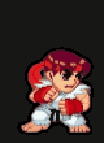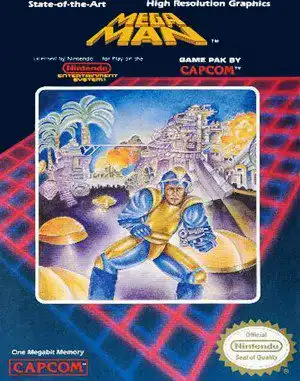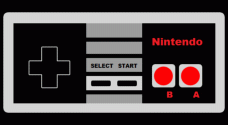Remember the feeling? The precise jumps, the perfectly timed shots, the agonizing decision of which Robot Master to tackle first? For generations of gamers, that feeling is synonymous with one name: Mega Man. More than just a character with a cool arm cannon, the Blue Bomber represents a golden era of challenging, rewarding action-platforming that still holds a powerful grip on our collective retro gaming nostalgia.
But why does this pixelated hero from the 8-bit era continue to resonate so strongly today? It's a mix of timeless design, relentless challenge, and a universe that, against all odds, just kept expanding.
The Core Loop That Hooked Us All
At its heart, the classic Mega Man formula is deceptively simple: run, jump, shoot, and defeat a colorful cast of Robot Masters to steal their powers. This elegant design is the bedrock of its enduring appeal.
- Tight Controls: Movement and shooting feel responsive and precise, which is absolutely crucial when pixel-perfect jumps and dodging projectiles are the order of the day.
- Weapon Acquisition: Defeating a boss and gaining their unique ability isn't just a reward; it's a strategic tool. These powers are often key to defeating other bosses and finding hidden areas, creating a satisfying progression loop.
- Non-Linear Choice: The ability to choose your path through the initial stages gives players a sense of agency, even if picking the "wrong" boss first makes things incredibly difficult!
This core gameplay loop is so strong that it's successfully carried the series across multiple consoles and iterations.
A Universe Expands: Beyond the Classic
While the original Nintendo Entertainment System games might be the first thing that comes to mind when you hear "Mega Man," the universe is vastly larger. Capcom didn't just stick to the script; they branched out, giving us different flavors of the Blue Bomber's world:
- Mega Man X: A faster, edgier sequel series set 100 years later, introducing dashing, wall-jumping, and armor upgrades.
- Mega Man Zero: A darker, more challenging series focusing on the popular character Zero.
- Mega Man Battle Network: A unique blend of RPG and card-based combat set in a digital world.
- Mega Man Legends: A 3D action-adventure series with a distinct art style and exploration focus.
This variety means that no matter your preferred genre or era, there's likely a Mega Man series that speaks to you, all stemming from that original, brilliant concept.
The Challenge: Why We Love to Hate It (And Vice Versa)
Let's be honest: Mega Man games are tough. Like, really tough sometimes. Instant death spikes, tricky enemy patterns, and boss fights that require mastering weapon weaknesses and movement are hallmarks of the series.
This difficulty isn't just frustrating; it's part of the fun. Overcoming a notoriously difficult level or finally figuring out a boss's pattern after multiple tries provides an immense sense of accomplishment. It's a challenge from a time when games didn't always hold your hand, and that pure, unadulterated difficulty is a key part of its nostalgic draw for many.
Where Can You Zap Robots Today?
Thankfully, you don't need to dig out your old consoles to experience the magic of Mega Man. Capcom has done a great job of making the series accessible:
- Legacy Collections: These compilations (available on modern consoles and PC) are fantastic value, bundling multiple games from the classic, X, and Zero/ZX series with save states, rewind features, and art galleries.
- Digital Stores: Many individual titles and collections are available on digital storefronts like Nintendo eShop, PlayStation Store, Xbox Games Store, and PC platforms like Steam and GOG.
- Emulation: For older PC releases (like the DOS games), resources like Archive.org can sometimes provide legal ways to play via browser-based emulation (like DOSBox).
Whether you're revisiting old favorites or experiencing the challenge for the first time, there are plenty of ways to jump into the world of Mega Man.
The Blue Bomber's Lasting Legacy
Mega Man isn't just a relic of the past; he's a foundational character in gaming history. His design principles influenced countless action-platformers that followed. The satisfaction of earning new abilities by defeating bosses is a trope seen throughout the industry.
His enduring appeal lies in that perfect storm of challenging-but-fair gameplay, memorable characters, catchy music, and a unique visual style. It’s a series that demands precision and patience but rewards you with incredible satisfaction. The Blue Bomber continues to zap his way into new generations of gamers' hearts, proving that classic design truly is timeless.
FAQ
Q: Which Mega Man game should I start with? A: Mega Man 2 or Mega Man 3 on NES are often recommended for newcomers as they refined the formula from the first game and are highly regarded classics, offering a great balance of challenge and fun. The Legacy Collections are also a good starting point as they offer multiple games in one package.
Q: Is Mega Man a difficult series? A: Yes, the classic Mega Man games are known for their high difficulty, requiring precise platforming and pattern recognition. However, modern collections often include features like save states or rewind to make them more accessible if needed.
Q: How many Mega Man series are there? A: There are several main Mega Man series, including the Classic series, Mega Man X, Mega Man Zero, Mega Man ZX, Mega Man Battle Network, and Mega Man Legends, each with multiple games and distinct gameplay styles.
Q: What's the difference between Mega Man and Mega Man X? A: Mega Man X is set 100 years after the classic series. X is an upgraded version of Mega Man with new abilities like dashing and wall-jumping, and the games generally feature faster-paced gameplay and a slightly more mature storyline.


